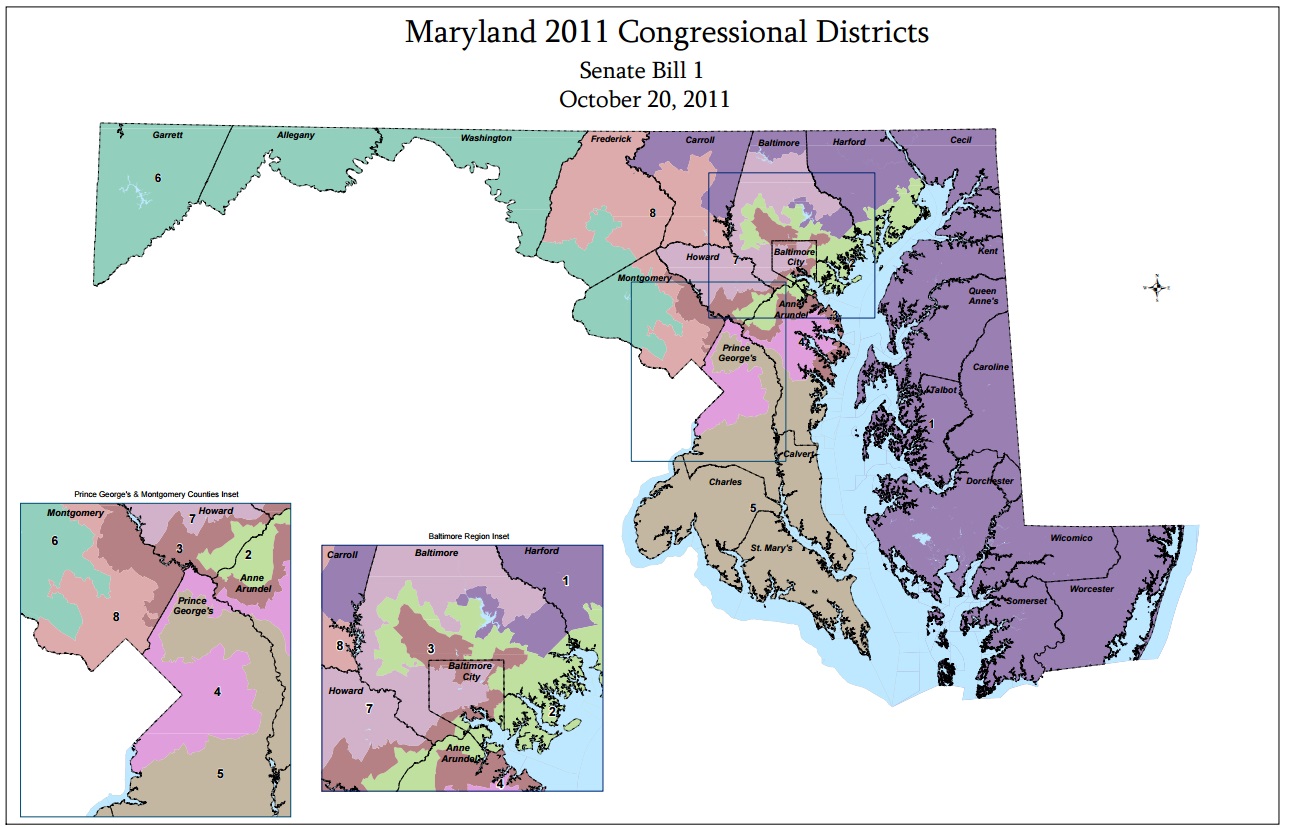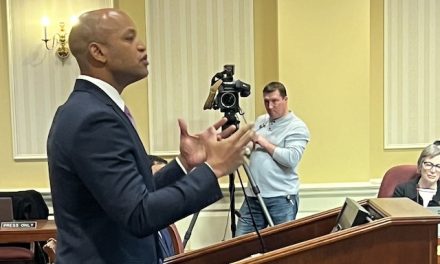Del. Kirill Reznik, a Montgomery County Democrat, sent this open letter to the Governor’s Redistricting Reform Commission, which will hold its final regional hearing Tuesday evening, Oct. 13, 6:30 p.m., Partnership Hall, 8011 Fifth Street, Laurel, MD.
By Kirill Reznik
Maryland House of Delegates
Maryland’s process for redistricting both at the State and Federal levels has been difficult for many to understand. If it is determined by the Governor’s Redistricting Reform Commission that reform is necessary, then I hope that the following suggestions prove useful to you in your deliberations.
The last sentence above is a critical first step. I believe that you must first determine whether reform is necessary or possible.
Many would argue, on both sides of the political aisle, the system is broken beyond repair and reform is a foregone conclusion. That may very well be, but I would challenge you to actually make such a determination through careful analysis, and a review of the potential solutions.
Furthermore, this should occur not because the governor or a segment of the population calls for it, but instead on the principles of a fair and just electoral system that best serves voters.
If you determine reform is necessary, then I would ask you to focus on three areas of specific concern: (1) non-partisanship, (2) professionalism, and (3) reform in a national context.
Non-partisanship
Non-partisanship is key to a fair system. The system that is ultimately designed to redraw legislative and congressional district maps must be composed of individuals that are truly non-partisan. Let me stress that they cannot be bi-partisan; but non-partisan. Let me elaborate on what I believe the difference is.
A bi-partisan system is made up of individuals appointed by elected officials, chosen specifically to balance representation that is equal or nearly equal between members of two political parties. This methodology leads to a map not based on a true distribution of votes founded on objective criteria, but rather creates a map that is a compromise to only appear balanced. Ultimately, the individuals that design the map under this methodology are answerable not to the data, but to the people who appointed them.
By contrast, a non-partisan methodology provides for a system where the individuals who draw the maps are not answerable to the elected officials who appointed them, and are not chosen because of their political affiliation. Instead, they focus their efforts exclusively on the data as presented.
If their work must ultimately be approved by an elective body through an up or down vote, that is fine, but their work cannot be altered otherwise, and they cannot be removed or replaced for anything other than illegal action or malfeasance.
Professionalism
This leads me to my second point – professionalism. In order to achieve a non-partisan approach that is based on data, the individuals selected to perform the task of redistricting must be professionals whose training, education, and experience reflect the necessary skills and qualifications to draw district maps.
Professionals such as demographers, cartographers, mathematicians, and computer scientists, along with legal experts who understand the law of redistricting, are the only individuals who should be tasked with this role. Ideally, housing the responsibility within one of our State Universities or other academic or research setting, or a technical office within state government, are two potential ways to achieve a truly non-partisan approach.
A national context
Finally, we must initiate reform in the context of a national conversation. It is very easy to dismiss the actions of other states and claim that our only focus should be reform in Maryland. However, this is a disservice to the people of Maryland.
When districts in Texas, Michigan, Ohio, Pennsylvania, and Virginia, just to name a few, gerrymander their districts to such an extent that their members do not even remotely reflect their state’s population, or that of the country as a whole, the effect of those elections is directly felt by the people of Maryland. The votes of those members of Congress have an equal weight to our own.
In fact, if the gerrymandering throughout the country creates a situation when one political party develops a national advantage and assumes the control of one or both Houses of Congress by manipulating their district lines, it creates a disproportionate effect on the people of Maryland.
This kind of gerrymandering is rampant and egregious.
Here are some examples to illustrate the extent to this problem around the country:
- Florida, a swing state that has 3% more Democrats than Republicans and voted for President Obama twice, currently has 17 Republican Members of Congress and 10 Democratic Members of Congress.
- Pennsylvania, a heavily Democratic state where Democrats outnumber Republicans 50% – 37% and voted for President Obama twice, (Pennsylvania has not given its Electoral
College votes to a Republican since 1988), currently has 13 Republican Members of Congress and 5 Democratic Members of Congress.
- Ohio, considered the ultimate swing state where Democrats and Republicans are evenly split and voted for President Obama twice, currently has 12 Republican Members of Congress and 4 Democratic Members of Congress.
- Virginia, another swing state and our neighbor to the South where Democrats and Republicans are evenly split and voted for President Obama twice, currently has 8 Republican Members of Congress and 3 Democratic Members of Congress.
This continues across the country, in Michigan, Georgia, North Carolina, and in heavily Democratic states as well, such as New York, Massachusetts, and yes, here in Maryland. Some of this can be explained by electoral action; bad candidates, crossover voting, etc., but not to this degree.
Maryland, as noted, is not innocent in this process, but we cannot naively assume that the rest of the country will follow if we were to suddenly change our system. Therefore, I would strongly encourage you to develop a redistricting reform plan in the context of a larger national initiative.
Two options for a national initiative
This can be achieved in one of several ways. Two such options include:
- Making our policy contingent on enough states following our lead that it would constitute a significant portion, if not a majority, of the membership in Congress. This is not unprecedented as Maryland has engaged in a similar effort through the National Popular Vote legislation passed in 2007. We would need to make that contingency in a way that would require those other states’ plans to be substantially similar to ours. Yes, this process would take longer and reform would be slower, but it would be fair; or
- We can enter into two-state or multi-state compacts with other States, such as our neighbors Pennsylvania and Virginia, in order to reciprocate our efforts. This would not achieve the national change that is proposed in #1 above, but regional change would be a start and it would be done in such a way as to moderate the effect on the political landscape.
It is my hope that I have provided you with some ideas that can truly make a difference in the way that we in Maryland approach redistricting.
My goals are simple; for me this is not about political party or electoral security. I truly hope we can reform our system, not just create another plan that will satisfy someone’s perception, but fail to achieve anything of substance.







I find this Delegate’s premise that in order to be fair to all Maryland voters we must hinge the elimination of gerrymandering on a national initiative to be ludicrous & doomed to languish on the pile of “good intentions”. If both political parties were interested in fairness to all voters, gerrymandering wouldn’t be an issue. Would the Dem majority in Maryland give up its power to promote a level playing field? No way, no how.